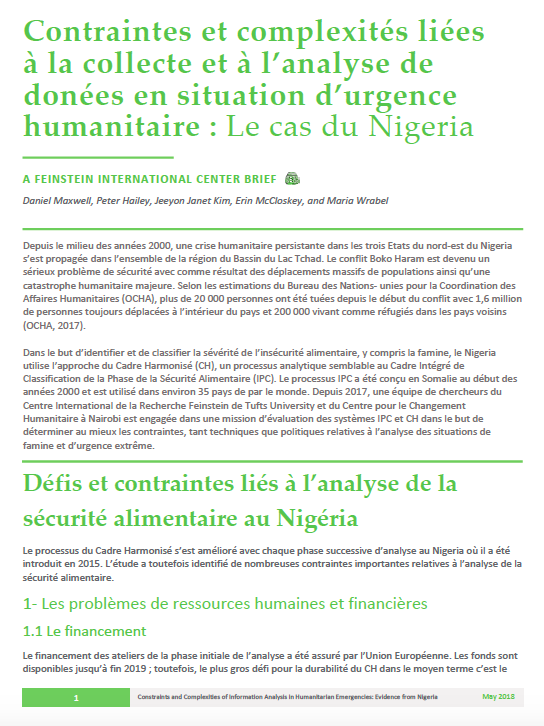Dans le but d’identifier et de classifier la sévérité de l’insécurité alimentaire, y compris la famine, le Nigeria utilise l’approche du Cadre Harmonisé (CH), un processus analytique semblable au Cadre Intégré de Classification de la Phase de la Sécurité Alimentaire (IPC). Le processus IPC a été conçu en Somalie au début des années 2000 et est utilisé dans environ 35 pays de par le monde. Depuis 2017, une équipe de chercheurs du Centre International de la Recherche Feinstein de Tufts University et du Centre pour le Changement Humanitaire à Nairobi est engagée dans une mission d’évaluation des systèmes IPC et CH dans le but de déterminer au mieux les contraintes, tant techniques que politiques relatives à l’analyse des situations de famine et d’urgence extrême.
Lisez le document d’information en français ici.
Lisez le rapport complet en français ici.
Read the full report in English here.
Read the briefing paper in English here.







